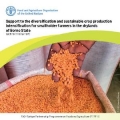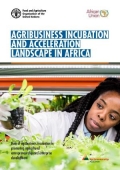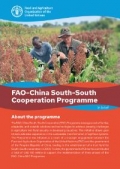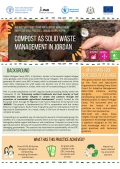Documents

24 May 2024
Agriculture is the main contributor to Nigeria's national economy, with over 65 percent of the population directly or indirectly relying on it for their livelihoods. Women and youth make up 50–70 percent of the sector's economically active population. The Food and Agriculture Organization of the United Nations (FAO), in cooperation with the Ministry of Agriculture and Forestry of the Republic of Türkiye and the Federal Republic of Nigeria, is supporting the capacity development of farmers and institutions.
24 Apr 2024
This report aims at providing an overview of the agribusiness incubation and acceleration landscape in Africa. The study is a joint effort between the Food and Agriculture Organization of the United Nations (FAO), the African Union Commission (AUC) and the Agripreneurship Alliance. The study mapped and analysed over 430 enterprise support organizations (ESOs) from across the continent.
22 Jan 2024
The FAO-China South-South Cooperation (SSC) Programme leverages cost-effective, adaptable, and scalable solutions and technologies to address pressing challenges in agriculture and food security in developing countries. This initiative draws upon China’s extensive experience in the sustainable transformation of agrifood systems.
The Programme was initiated as a result of a strategic engagement between the Food and Agriculture Organization of the United Nations (FAO) and the government....jpg)
17 Jan 2024
Le développement de l’Afrique est entravé par des difficultés de taille, qui procèdent de trois phénomènes: la covid-19, la crise climatique et la guerre en Ukraine. Les progrès en matière d’élimination de la faim ont été défaits, tandis que pour la première fois en vingt ans, le taux de pauvreté extrême à l’échelle mondiale augmente. Il est urgent de trouver des solutions novatrices et d’autres modes de collaboration.
01 Dec 2023
Zaatari Refugee Camp (ZRC), in Northern Jordan, is the seventh-largest refugee camp globally, and it hosts around 80 000 Syrian refugees. This new population generates 34 metric tons (MT) of waste, which is collected and trucked out of the camp daily. Disposing the solid waste has become one of the most serious environmental problems in Jordan, with much of its waste ending up in landfill.